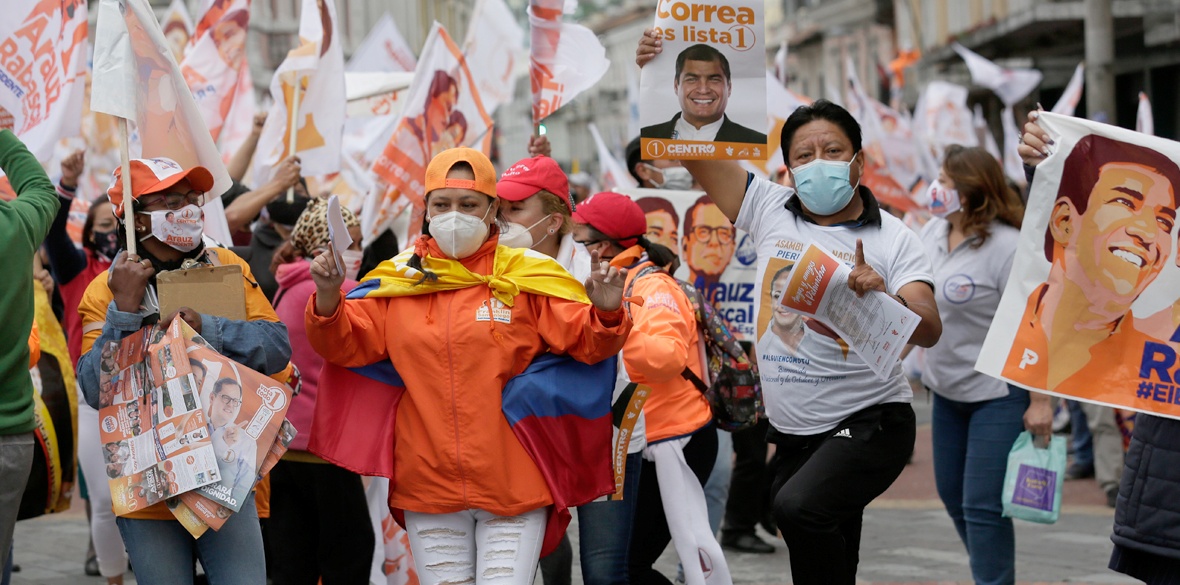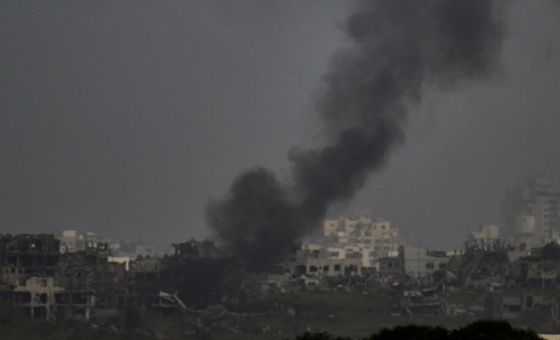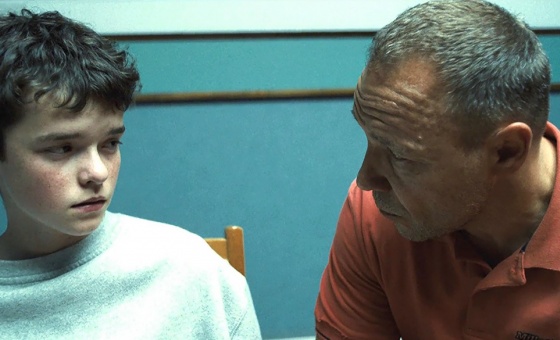This is the last article you can read this month
You can read more article this month
You can read more articles this month
Sorry your limit is up for this month
Reset on:
Please help support the Morning Star by subscribing here
A 35-YEAR-OLD left-wing economist, Andres Arauz, looks set to become the next president of Ecuador in elections this Sunday.
This would be the latest comeback for the socialist left in Latin America. But only if the elections are allowed to go ahead.
No region has had such an influence on the Western left in recent years as the “pink tide” of progressive Latin American governments elected since the turn of the century.
At a time when many were declaring “the end of history” and the final triumph of the free market, leaders such as Hugo Chavez and Evo Morales showed that not only is there an alternative, but that it had to be based on socialism.
Ecuador under president Rafael Correa was a key part of that wave of left victories and during his decade in office, the nation of just 17 million people punched well above its weight.
Ecuador significantly reduced poverty, nationalised oil resources to fund huge increases in public investment, cancelled foreign debts that had directed huge sums away from public services, made the wealthy pay their taxes, kicked out the region’s largest US military base, gave asylum to Julian Assange and became the headquarters for the Union of South American Nations (Usan/Unasur) that opposed US domination of the region.
In doing so, the alliance of progressives in Correa’s government made powerful enemies.
Since he left office in 2017, a combination of Ecuador’s wealthy oligarchs and the US government have sought to restore the free-market model and restrict democracy to prevent any return of the left. The result has been widespread chaos.
The current neoliberal government of Lenin Moreno has overseen two appalling scandals in the last two years.
Ecuador has had one of the world’s worst responses to the Covid-19 pandemic. With 45,000 excess deaths, it has a death rate per head double that of the UK.
Shocking images of dead bodies abandoned in the street as mortuaries overflowed went around the world and provided some of the most disturbing scenes of the global pandemic.
A new UN paper highlights the social catastrophe that has accompanied these government failures.
In the first sixth months of 2020, poverty in Ecuador doubled to 58 per cent and extreme poverty increased four-fold to 38 per cent.
Just months before the Covid crisis hit, Ecuador exploded with a popular uprising against IMF-imposed austerity measures.
As tens of thousands took to the streets in the largest protests in decades, the state responded with bloodshed — killing protesters, putting the army on the streets and even temporarily moving the nation’s capital city.
The deal between the Ecuadorian government and the IMF led to the sacking of nearly 4,000 health workers, leaving the country even less able to respond to the Covid crisis.
Arauz is standing on platform of reversing that with a return to the type of socialist policies implemented under Correa.
Despite his young age, Arauz has already served in Correa’s government as a planning and an education minister and was previously director of Ecuador’s Central Bank.
He has said he will reject past deals with the IMF “because they undermine Ecuadorean families and economic growth,” adding that “we have international commitments, but we will always seek first to defend Ecuadorian families before prioritising international creditors.”
He backs a major programme of public works in transport, healthcare and education and is committed to a wealth tax.
Free internet access will be guaranteed and treated as a human right. As part of increased social security spending, he has promised to give £735 — three months’ minimum wage salary — to one million poorer families to help kick-start the economy.
Although not a candidate, Correa is central to this election.
“We’re going to vote for Arauz, hoping that all the good things that happened with Correa will be repeated,” Vinicio Naranjo, a 45-year-old teacher in a working-class Quito neighbourhood told Reuters recently.
With Ecuador in crisis, and having left office with approval ratings of 60 per cent, Correa would have been favourite to win if able to stand.
But fearing such an outcome, the Ecuadorian elite has clamped down on democracy since Correa left office.
Politicians in Correa’s progressive alliance have been the victims of extreme political persecution, some jailed on trumped-up charges and others forced into exile.
Soon after he left office, the constitution was changed to prevent Correa from running for the presidency again.
After he was announced as Arauz’s vice-presidential candidate, he was soon barred on phoney corruption charges.
That move came straight from the playbook that saw Brazil’s Worker’s Party leader Lula da Silva jailed and prevented from standing in the 2019 presidential election he was set to win.
Arauz himself faced attempts to ban his presidential candidacy after having initially proposed to stand in an alliance with Correa.
In a sign of just how desperate the Ecuadorian elite is, the authorities have even banned the Arauz campaign from using the images and voice of Correa in campaigning materials in a blatant form of political censorship.
Despite the widespread political persecution, Arauz is currently ahead in the polls.
To win in the first round a candidate needs 50 per cent or to secure 40 per cent with a 10-point margin over the runner-up.
Recent polls show Arauz on around 40 per cent ahead of Guillermo Lasso, on 27 per cent.
Lasso is a wealthy banker who has been presidential candidate on three separate occasions.
In 1999 he was the finance minister in charge of negotiations with the IMF after Ecuador suffered a huge banking crash. The choice couldn’t be more stark.
With a victory for Arauz very likely, the growing fears are that the authorities may postpone the election or place other obstacles to prevent a left victory.
Concerns have been raised over changes to the ballot-counting process and over suggestions that some members of the national electoral council — the very body that allowed Arauz to run — could be removed.
Arauz has warned that the aim of Ecuador’s elites is to stop a socialist getting into office and instead hand the presidency to a banker.
Over the coming weeks, international solidarity will play an important part in defending both democracy and social progress in Ecuador.









